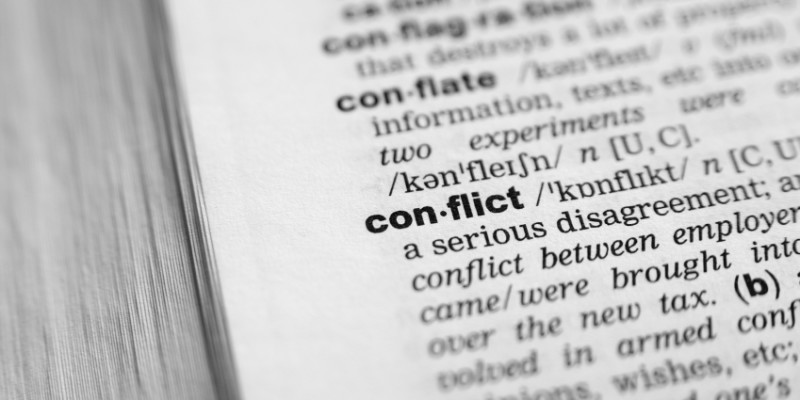(This is the final part of a keynote address to the YMCA Conference “From Reactions to Relations” in Burton on Trent on 20 November 2014.)
Having considered what we can’t help noticing about our clients and about conflict I now turn to the tricky business of self-knowledge: what has our unique perspective at the heart of other people’s conflict taught us about ourselves?
Once again there are three headings:
1. We ask more questions: not (only) because it’s nice but because it brings more data into the room
2. We resist the “gullibility of cynicism”
3. Most of us are conflict avoiders but some of us like it
1) We ask more questions
Mediators tend to ask a lot of questions. They are genuinely curious about people and want them to know that they have been heard.
But there is a simpler reason. In situations of conflict, people know less than they think they know. If I ask clients what are the gaps in their knowledge about the other side’s perspective, I often get a puzzled reaction: “I know them only too well.” The delicious irony of conflict is that the less we know about our adversary the less we want to know.
And so in every situation there is neglected data. There are always surprises, precisely because we have made up our minds about the other. By bringing this neglected data into play mediators help people make better decisions. If we think of mediation as facilitated negotiation, each negotiator knows a great deal about their own perspective. They only know a little about their counterpart’s point of view. And yet most of us act as if the most important thing we can do in negotiation is to state and re-state our case. We learn nothing new and, as a by-product, further convince the other side that we are disinterested in them. Researchers in one study found that highly effective negotiators asked more than twice as many questions as average negotiators (Neil Rackham ‘The Behaviour of Successful Negotiators’ in Roy Lewicki, Bruce Barry and David Saunders (Eds.) Negotiation: Readings, Exercises, and Cases (International Edition) New York: McGraw-Hill (2007).
2) We resist the gullibility of cynicism
This is a phenomenon identified by John Forester (Dealing With Differences: Dramas of Mediating Public Disputes. Oxford: OUP, 2009). He describes “a political gullibility that masquerades as realism: because the parties to a conflict talk tough, and have talked tough and acted tougher for years, some believe that no agreements today or tomorrow seem realistically possible.” In my culture (Scotland) this is frequently and graphically expressed in the phrase “that’ll never work.” It looks like realism and worldliness but in fact this approach can lead people to overlook possibilities, to overestimate their own powers of insight and prediction and underestimate everybody’s capacity for change and invention. They give up too quickly.
Experienced mediators are more likely to say, “Let’s just wait and see.” When I speak to colleagues who have done this work for a number of years I find remarkable consensus around a simple idea: we really can’t predict which cases will resolve and which won’t. But we know that if we treat people with respect and assume the best of them they will often surprise themselves by seizing the opportunity to sort things out. This opens up the possibility that the way things have been is not the only way they can be; and that the past need not dictate the future.
3) Most of us are conflict avoiders but some of us quite like it
I finish with an entirely subjective and unsupported observation. It seems to me that a lot of us (maybe 60-70%?) get into mediation because of our instinctive distaste for conflict. We can’t help ourselves. A friend starts to get heated with another: we find ourselves, unbidden, lowering the temperature by looking for a face-saving way for both to be right, or at least well-intentioned. I do it with my dad, I did it when I played in a band, and I do it in the pub. It’s as if I can’t relax until people are on reasonable terms.
There is another breed of mediator, however (maybe 30-40%?) These folk seem quite comfortable making a fuss. They are fearless and their great gift is to tell it like it is. One prominent English mediator told me he had discovered he was very good at getting refunds.
And here’s the learning: there are risks for both types. The avoiders risk behaving like rabbits caught in the headlights of other people’s disputes. Our challenge is to develop a tolerance for conflict: a capacity to endure the discomfort and rely on our instincts for calming tempers and saving faces to help us steer into the heart of the problem.
And those who rather relish conflict? Their risk is simpler: pissing people off. The challenge for this group is to build an understanding of just how troubling conflict is to most people. Then I have seen these brave souls speaking the truth with gentleness while respecting their clients enough to believe they can take it.
Conclusion
These three blogs were an attempt to answer the question: after all this mediating, have you actually learned anything? And maybe a deeper question: does the work rub off on the mediator? It turns out that the in-betweener vantage point does provide some novel lessons. We learn about the people we work with: that everybody’s story makes sense to them; that they care about fairness and justice; and that what we see matters as much as what we hear. We learn too about the raw material of conflict: that people are not great at guessing the true causes of other people’s behaviour; that they underestimate their own contribution to trouble; and that friends and supporters, if we are not careful, can compound rather than reduce the difficulty. And finally we mediators learn about ourselves: that our nosiness has a practical purpose; that we are professional optimists who don’t give up before we begin; and that there’s a place for all types in our ranks, whether conflict-avoiders or not.
It strikes me that all this needs to be leavened with a healthy dose of humility. I heard one well-known US mediator tell an audience, “I don’t believe in unresolvable conflict – but I might not be the right guy.” We do our thing. Often, and surprisingly, it works. Sometimes it doesn’t. But whatever transpires we want our clients to know that we believed in them, even when they didn’t believe in themselves.
________________________
To make sure you do not miss out on regular updates from the Kluwer Mediation Blog, please subscribe here.




